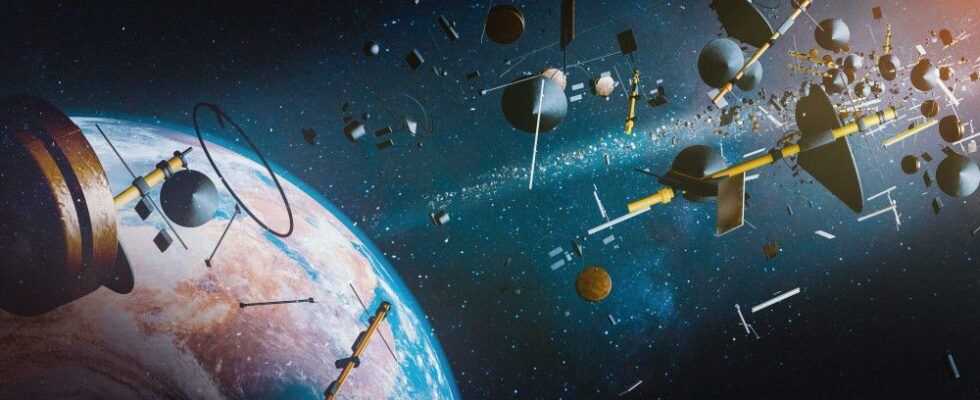China is angry with Elon Musk. There are said to be calls for boycotts in Chinese Internet forums. The reason is Musk’s Starlink satellites.
Enlarge
If there had actually been a collision, more space debris would now be flying around the earth. And the Chinese astronauts would be dead.
© OSORIOartist / Shutterstock.com
The People’s Republic of China is mad at Elon Musk. Although its Teslas are not only very popular in China, but are also built there (the Model Ys sold in Germany come from the Chinese Gigafactory until the German Tesla factory in Grünheide is finally allowed to start production). The reason for the Chinese displeasure is not Musks Teslas, but rather his space company SpaceX and its Starlink satellites for operating an Internet connection.
Update December 29th: China files a complaint with the UN
China has even officially filed a complaint with the UN. In this document, the People’s Republic presents its view of things.
Update end
This is how China describes the near collision
Chinese media reports that China’s manned Tiangong space station has had to avoid Starlink satellites twice in order to avoid a collision and to save the lives of the Chinese astronauts (known as Taikonauts by China) on board. That should have happened on July 1st and October 21st, 2021. Tiangong flies around the earth at an altitude of around 390 kilometers.
Before the incident in July, the Starlink satellite 1095 had dropped from its actual orbit altitude of 555 kilometers to just 382 kilometers, thus coming worryingly close to the Chinese space station. On July 1, Tiangong then had to evade. Starlink satellite 1095 then continued to descend and enter the earth’s atmosphere, where it burned up in September 2021.
The second incident in October occurred with Starlink satellite 2305: Back then, too, the Starlink satellite left its actual orbit without any knowledge of what the satellite was planning – at least that is how the Chinese tell the UN. Tiangong had to evade again . Starlink satellite 2305 then rose from its last 350 kilometers to 550 kilometers.
China is therefore accusing the US of violating space treaties – the US is probably a more worthwhile opponent than Musk for the Chinese government. Because there has been tensions with the USA for some time, the USA and China are competing, among other things, for supremacy in the Asian region.
Calls for boycotts
There were calls for boycotts against Tesla and calls for sanctions on Chinese internet services. Since China strictly regulates the Internet, the suspicion that the government of the People’s Republic is behind the boycott calls is reasonable.
Similar incident in 2019
The near-collisions with the Chinese space station are not the first such incidents. Already in 2019 a satellite of the European space organization ESA had to evade a Starlink satellite to prevent a collision: near collision – ESA satellite evades Elon Musk’s internet satellite. Since then, SpaceX has launched many more satellites into orbit. There are currently around 1900 Starlink satellites orbiting the earth. SpaceX uses it to operate its satellite-based Internet access.
SpaceX claims that its satellites can automatically evade if they get too close to other spacecraft. Other spaceships would therefore not have to avoid them at all.
There is no neutral observer of the two incidents. Thus it cannot be decided whether the evasive maneuvers of their space station claimed by the Chinese were actually necessary.
Tiangong
The Tiangong (“Heavenly Palace”) referred to here is the third Chinese space station of this name. Your two predecessors Tiangong 1 and Tiangong 2 have already burned up again or have fallen to earth:
Chinese space station crashed to earth
Tiangong-2 space station burned out as planned
Space rocket crashed to earth: no damage
